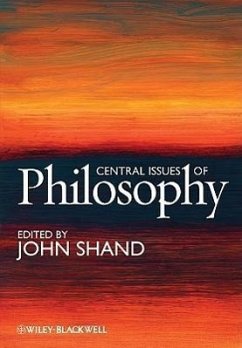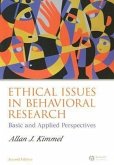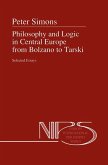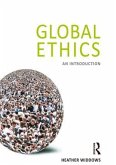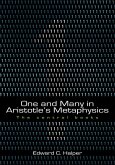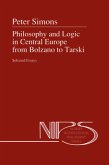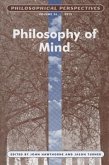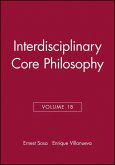This accessible and comprehensive introductory text provides a solid foundation for understanding the core topics at the heart of philosophical inquiry. Each of the 20 chapters focuses on a single philosophical issue - ranging from truth, knowledge, perception, and free will to ethical choice, aesthetic value, the existence of God, and the nature of the state - and is written by a specialist on that topic. Contributors employ a carefully balanced, reader-friendly approach to these core issues, explaining the nature and parameters of the topic at hand in concise, non-technical language. Central Issues of Philosophy is an indispensable companion to study, familiarizing the beginning student with the full range of issues they are likely to encounter, and offering an excellent springboard for more advanced study.
Hinweis: Dieser Artikel kann nur an eine deutsche Lieferadresse ausgeliefert werden.
Hinweis: Dieser Artikel kann nur an eine deutsche Lieferadresse ausgeliefert werden.
"A very solid and well-rounded initiation to canonical philosophicissues, ranging from language and meaning to artistic value. Thisriveting collection introduces complex philosophic issues as wellas what is at stake about those issues in a clear and concisemanner, making it accessible to the beginning student and thegeneral reader while remaining of great interest to more advancedthinkers."
Enrique Chávez-Arvizo, John Jay College -- The CityUniversity of New York.
"This is a wonderful collection of essays appropriately pitchedfor introduction-to-philosophy students. This book is ideal forprofessors who don't use primary sources in their introductorycourses, as each article is written by an expert in the particularsubfield. It also would make a wonderful supplementary text forthose who do like to use primary texts."
Richard V. Greene, Weber State University.
Enrique Chávez-Arvizo, John Jay College -- The CityUniversity of New York.
"This is a wonderful collection of essays appropriately pitchedfor introduction-to-philosophy students. This book is ideal forprofessors who don't use primary sources in their introductorycourses, as each article is written by an expert in the particularsubfield. It also would make a wonderful supplementary text forthose who do like to use primary texts."
Richard V. Greene, Weber State University.

